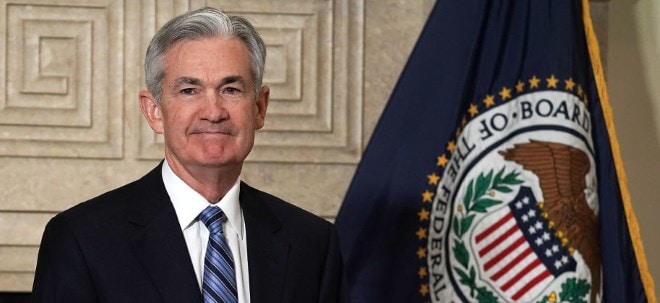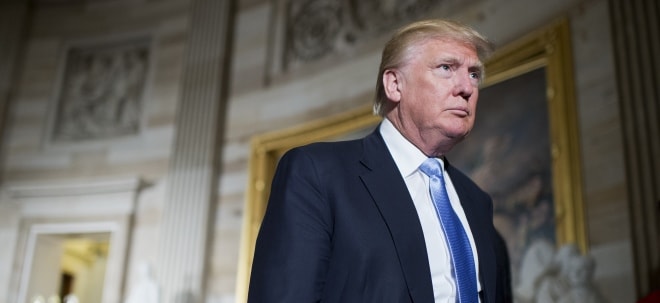Another Crackpot Theory?: German Connection
I try to just be a good drudge and limit myself to interpreting legal documents for ya'll, but today's huge volume got me to thinking, so let me speculate like (almost) everyone else . . .
See kevins1313 and stephenbenedict's thread at http://messages.finance.yahoo.com/Stocks... (Great detective work, guys.)
It shows that roughly 15% of all WAMUQ shares in the float traded today, with a full 2/3's trading on the various German exchanges. I have limited trading experience, so I'm not sure exactly what this means, but if I'm not mistaken this is the largest share volume trading day since the days after the seizure. It's been established elsewhere (couldn't find the links) that JPM has a significant presence in Germany, with subs and "friends". Could they be acquiring shares in anticipation of a settlement, but doing it mainly offshore to avoid suspicion and limit the run-up?
"But wait", you say, "what about the judge's ban on acquiring more than 4.75% of Q's and 4.50% of P's?"
So I went back and looked at that order (on kccllc, dated 11/07/08, dkt. #0243). It's entitled an "Interim Order", issued at WMI's request for the sole purpose of protecting the property value of NOLs and other "tax attributes" that belong to WMI from being lost by operation of IRS regulations and US tax laws. It doesn't absolutely prohibit transfers or sales over the proscribed percentage, it just gives WMI (subject to Court approval) veto power over them, and establishes a procedure whereby a substantial purchaser has to give 20-day notice to WMI, the Creditors' Committee and the Noteholder Group of an intended purchase, and those parties then have 15 days after filing of the notice with the court to file an objection to the purchase with the court. Violation of these procedures means that, as far as the BK court's jurisdiction goes, the transaction would be void "ab initio" (as if it never happened) and the violator could be sanctioned (i.e., fined) by the BK court. There are more details, but that's basically it.
So, first question (for Bop?): What jurisdiction does the bankruptcy court have in Germany anyhow? As far as I know, zero. There are attribution rules in the order which attribute to a holding company or individual any shares purchased by a subsidiary or other individual, whether by formal or informal agreement, on behalf of the holding company or individual, but how is Judge Walrath going to prove it and enforce that in Germany? What if it's the Chinese friends of Bonderman that are buying. What is she going to do about that?
More to the point, as part of a global settlement WMI, the Creditor's Committee and the Noteholders could agree with JPM not to exercise their veto and to waive the requirement of a giving and filing formal notice. This could permit JPM to acquire shares directly or through proxies on the open market, thereby cushioning the actual blow of any eventual settlement, because they would be, in part, paying themselves. Although the NOLs may thereby be lost to WMI, WMI doesn't have any profits to offset with NOLs anyhow (the NOLs only have value to a big acquirer with big profits to offset) AND as part of the global settlement WMI could concede to JPM the well disputed issue that the large bulk of the NOLs belong to WMB under the tax-sharing agreement anyhow, and that would further offset JPM's bottom-line cost to settle. I know it all sounds a bit underhanded, and perhaps it would run afoul of insider trading laws (in Germany?), but who knows, it might help settle the case.
Like I said, just another crackpot theory, but I say "Hold tight. Don't let them shake you out for 20 cents."
GLTA
_
Thanks Vivian for you thoughts.
I agree that BK court has no jurisdiction outside the US.
Re: "but how is Judge Walrath going to prove it and enforce that in Germany?" That's the rub. I learned early on that what the law says and the law in practice are widely divergent. The way I see something like that played out is after a global settlement, details come out about dirty dealing and reduced cost to JPM for the acquisition. At that point, WMI would be hard pressed to back away from a done deal, spend more time and money in court, etc., no matter how bad a taste it left in their mouths.
I think your cooperation scenario is more likely, given the amount of cooperation we have seen by WMI to date.
Interestingly, another poster makes a comment about the possibility of receiving a favorable tax letter from the IRS in connection with all the latest redacted billing.
http://messages.finance.yahoo.com/Stocks...
Perhaps some of the redacted billing relates to wrangling with the IRS over NOLs and how share ownership and acquisition affects these NOLs.
We are all grasping at straws to explain the recent volume and PPS run-up. So I'll throw in my two cents.
For instance, perhaps the IRS has stated that shares acquired prior to an acquisition, or as part of a plan of acquisition (global settlement), and in the hands of a potential acquirer (JPM), do not affect the value of NOLs, either in the hands of the acquirer, or the target (WMI). Say perhaps that, if the plan of acquisition fails, the would-be acquirer could divest according to some timeline or something.
In any event, that would make the Interim Order without purpose, and open the door to cheap share acquisition - directly by JPM even, without hiding behind subsidiaries or backroom agreements or secret handshakes.
In addition, such a statement could make WMI a more attractive target instantly (not just to JPM), as it could remove risks associated with the NOL question.
http://messages.finance.yahoo.com/...&rt=2&frt=2&off=1#-1 -----------
An der Börse sind 2 mal 2 niemals 4, sondern 5 minus 1.
Man muß nur die Nerven haben, das minus 1 auszuhalten. |


 Thread abonnieren
Thread abonnieren

